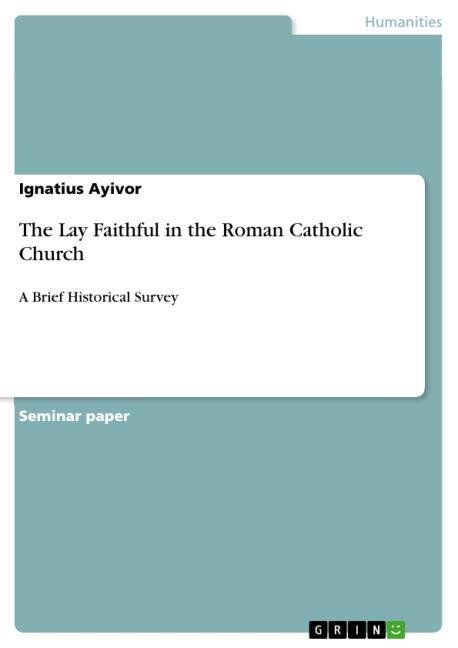Seminar paper from the year 2010 in the subject Theology - Historic Theology, Ecclesiastical History, , language: English, abstract: The word ¿laity ¿ or ¿lay¿ comes from the Greek term laikos which in turn, is derived from the word laos which means ¿people¿. The term ¿lay¿ therefore, means ¿belonging to the people¿. However, a long historical development affected the original meaning of the term ¿lay¿ especially in its use in the political and secular spheres. The term underwent some changes in meaning and thus acquired a meaning of opposition to religion or the term ¿sacred¿. The term ¿lay¿ attracted an expression of attitude of separation and rejection. In general usage ¿lay¿, as a word is applied to all those who are outside a given profession. Those who are not professional in a given profession are regarded as lay persons. Likewise in the Church, the word ¿laity/lay¿ was gradually introduced and it was applied to Christians by some authors. In order to establish the identity of laity or lay faithful in the Church, it is important to examine how the Church defines who a lay person is. The Church simply sees the lay faithful as persons who are baptized into the Church, who have a secular quality and whose functions in the Church differ from those who are ordained. The Church has a long history with regard to the laity and their activities in the Church. There are several historical factors that undergird the treatment and position of the lay people in the Church. From the very beginning of the Church, lay people participated in ecclesial life and contributed immensely to the mission of the Church. The author intends here not to give extensive historical exposition of the important roles of the laity but to highlight a representation of their active presence and the factors that affected their position in the Church through historical time. The author traces the history of the laity and their involvement as well as their position within ecclesial structures under various historical periods.



